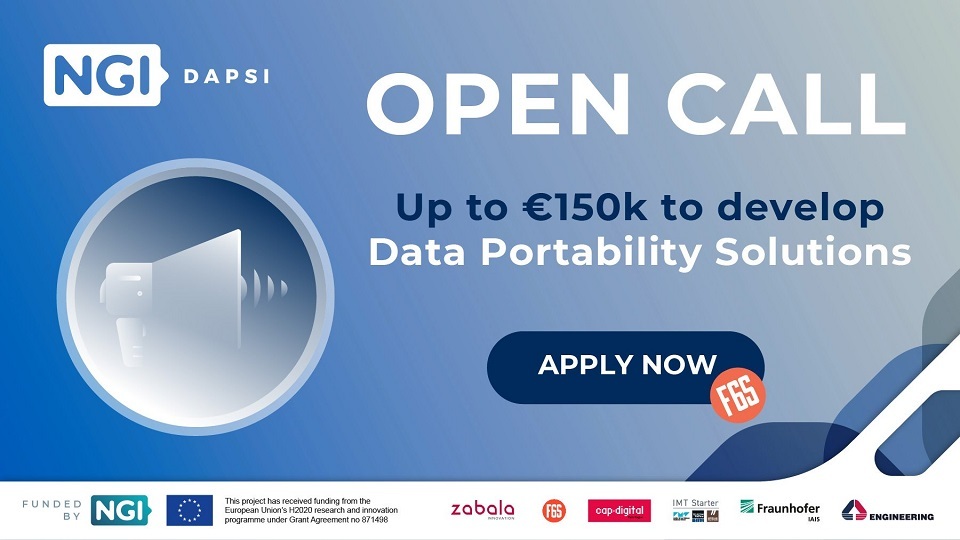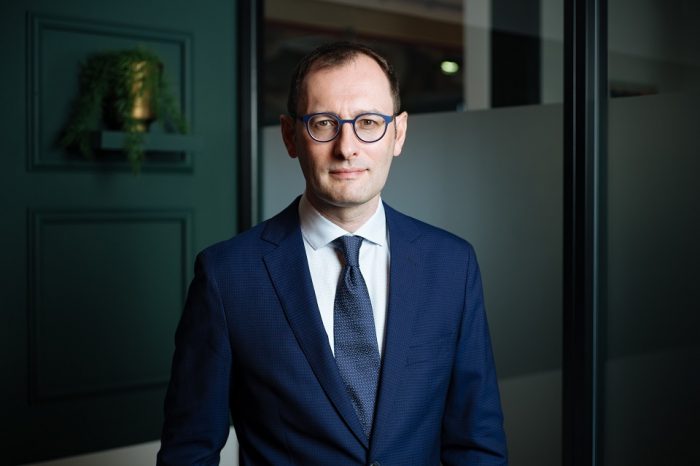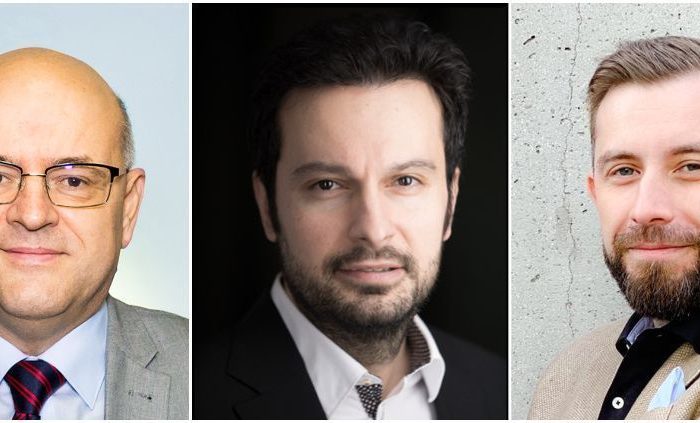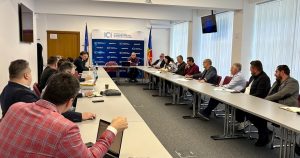Open call from DAPSI: 2.5 million Euro funds from EU and support for data portability projects

The NGI Data Portability and Services Incubator (DAPSI) is launching its third Open Call to distribute 2.5 Million Euros to internet innovators, empowering them to develop new solutions in the Data Portability field. This is part of Next Generation Internet, an initiative of the European Commission, which aims to shape the Internet for the future as an Internet of Humans, comprising an ambitious research and innovation program, part of the future Horizon Europe (2021-2027).
APPLICATIONS ARE OPEN
The NGI Data Portability and Services Incubator (DAPSI) empowers internet innovators to develop human-centric solutions in the Data Portability field. DAPSI goal is to make significantly easier for citizens to have any data which is stored with one service provider transmitted directly to another provider, addressing the challenge of personal data portability on the internet as foreseen under the GDPR.
The General Data Protection Regulation (GDPR) has the purpose of making it significantly easier for citizens to have any data which is stored with one service provider transmitted directly to another provider. But in most cases, it is still difficult to do so.
DAPSI will support top-notch projects through a 9-month supporting programme where experts in diverse fields will provide a successful working methodology, access to top infrastructure, training in business and data related topics, coaching, mentoring, and a vibrant ecosystem.
On top of that, each DAPSI project can receive grants up to €150K to develop new solutions in this data portability field.
HOW DOES IT WORK?
Applications are open on F6S until 23rd November 2021, at 5:00 pm CET.
Apply here: https://www.f6s.com/dapsi-open-call-3/apply
An online webinar was held on the 13th of October, providing potential applicants more information about the programme and the application process. The recording can be accessed here: https://www.f6s.com/dapsi-open-call-3-webinar-1-guide-for-applicants
The selected applicants will participate in a two-phase supporting programme, to develop advanced solutions in the Data and Service Portability fields, attend training sessions, pitch and access top infrastructures, with coaching support. All successful projects will progress to the second phase where the solutions will be fostered to evolve into solid contributions to the research community and/or into commercial solutions able to address market needs.
“This third call is the last one, with the biggest budget allocated until now, 2.5M€, to fund a diverse variety of projects addressing different challenges from Service portability to Data Sovereignty among others. Projects with open-source results making a change in the future internet fit into our DAPSI’s vision.” Sara Mateo – DAPSI project coordinator.
Find more information on www.dapsi.ngi.eu
About Next Generation Internet (NGI)
Next Generation Internet (NGI) is an initiative of the European Commission, which aims to shape the Internet for the future as a powerful, user-centric (Internet of Humans) ecosystem that meets the fundamental needs of the population, including those of confidence, security and social inclusion. NGI comprises an ambitious research and innovation program based on an initial European Commission investment of over € 250 million between 2018-2020 and is part of the future Horizon Europe program (2021-2027).
For the period 2021-2022, the European Commission will dedicate EUR 62m to support top internet innovators in the areas of trust and data sovereignty on the Internet; Trustworthy Open Search and Discovery; Internet Architecture and Decentralised Technologies; as well as enhanced EU-US and EU-Canada cooperation and collaboration.
The NGI program funds the best research and innovation projects in the field of the Internet, focusing on advanced technologies, including privacy, search and discovery, decentralized architectures, blockchain, Internet of Things, social media, interactive technologies and technologies that support multilingualism and accessibility.













